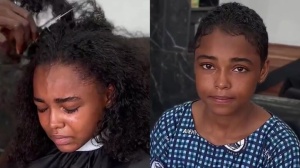adverts
NCPTA Backs Education Minister’s Dress Code Directive, Calls for Discipline, Decency and Partnership in Schools
The National Council of Parent-Teacher Associations (NCPTAs) has thrown its full support behind the Minister of Education’s directive to the Ghana Education Service (GES) to enforce the code of conduct for students in pre-tertiary institutions — particularly concerning improper dressing and personal appearance.
In a press statement signed by Raphael Kofi Gapson, General Secretary of the NCPTA, the Council described the directive as “vital for fostering an environment conducive to learning, discipline, and respect for the educational process.”
The NCPTA underscored that the minister’s directive is rooted in constitutional and statutory principles that promote discipline and moral development in education.
Citing Article 25 and Article 38 of the 1992 Constitution, the Council noted that the state has a duty to provide educational facilities that uphold dignity and focus on academic growth.
adverts
It further referenced Article 14(1)(e), which empowers lawful restrictions for the education or welfare of minors under 18 years.
“The Minister’s position aligns with Ghana’s constitutional commitment to nurturing disciplined, responsible, and morally upright citizens,” the statement said.
According to the Council, schools are not only centres for academic instruction but also “training grounds for moral and character formation.”
The statement emphasised that dress codes—such as maintaining neat, modest hairstyles, clean attire, and avoiding extravagant accessories—help students focus on learning and instil lifelong values of decency and self-respect.
“Improper dressing breeds indiscipline, disrupts order, and weakens societal values that define our Ghanaian and African identity,” the NCPTA cautioned.
The Council also warned against extreme hairstyles, body bleaching, and the wearing of chains, bangles, or caps on campus, describing such trends as “social distractions inconsistent with educational discipline.”
The NCPTA referred to its own Constitution (Article 11, Section 1), which mandates the organisation to:
- Promote the welfare of school-going children,
- Raise the standards of home life through proper upbringing, and
- Secure laws that protect students and pupils.
The Council said enforcing discipline in schools reflects these constitutional objectives and reinforces shared values of self-respect, respect for others, and preparation for civic responsibility.
The statement outlined four key rationales for the enforcement of dress codes:
- Promoting Discipline: Essential for academic success and personal development.
- Reducing Distractions: Encourages a learning-focused school environment.
- Ensuring Equality: Minimises class distinctions and promotes inclusivity.
- Preparing for Society: Grooms students for professional and cultural expectations.
While supporting the directive, the NCPTA advocated for a balanced approach that respects student rights and cultural diversity.
It urged continuous dialogue among parents, teachers, students, and education authorities to ensure that policies are “fair, reasonable, and contextually appropriate.”
The Council also recommended strengthening guidance and counselling services in schools to help address underlying behavioural challenges rather than relying solely on punitive measures.
Call to Stakeholders
- To the GES and Schools:
Implement the dress code with sensitivity to culture, student welfare, and educational objectives. Collaborate with NCPTA structures to prevent future disputes. - To Parents and Guardians:
Actively support schools in enforcing discipline and decency. The NCPTA further suggested that school-based PTA executives establish affordable barbering salons in boarding schools to ensure students maintain clean and approved hairstyles. - To Students:
Embrace the student code of conduct as part of personal development and preparation for societal and professional life.
The NCPTA reaffirmed its commitment to partnering with the Ministry of Education, GES, and other stakeholders to promote quality education that balances academic excellence with character development.
“We believe discipline and decency are not punishments but essential virtues for building responsible citizens. Together, we can nurture a generation that upholds Ghana’s values, respects authority, and contributes meaningfully to national development,” the statement concluded.
Click the link Puretvonline.com | WhatsApp Channel to join the WhatsApp channel
GOT A STORY?
Contact/WhatsApp: +233243201960 or manuelnkansah33@gmail.com


